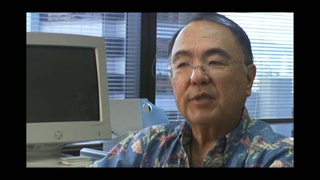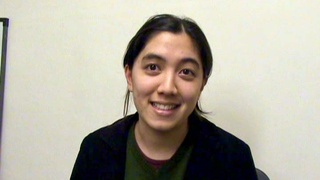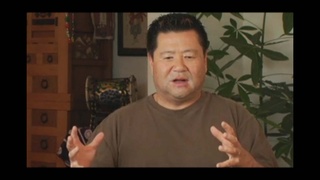Interviews
Obon and the community
I never missed an Obon, especially at Paia Mantokuji because that was the family church. So my parents would always bring me home during the summer for Obon. So, I always continued to play even through college. Then, when I came home for good and having started dating my future husband at the time, when I came home I realized that as I was attending these Obons, the community was aging at the Obons, actually, because there weren’t younger children and families that were attending Obon. And the dancers were of the aging population. And I felt sad about that, because I felt that if there’s a way to help encourage the younger children to get involved, then we knew for a fact, the tradition would continue. So, after I married and my husband was so involved in taiko, we sort of went on a mission to try to get the younger generation to come out to Obon.
Date: July 9, 2004
Location: Hawaii, US
Interviewer: Art Hansen, Sojin Kim
Contributed by: Watase Media Arts Center, Japanese American National Museum
Explore More Videos

Taiko is a reflection of where you live
Senshin Buddhist Temple minister and co-founder of Kinnara Taiko.

Playing traditional gagaku while creating an identity
Senshin Buddhist Temple minister and co-founder of Kinnara Taiko.

Taiko as self-expression
Co-founder and creative director of San Jose Taiko

A “principally-based” taiko group in England creating a global taiko community
Co-founder and creative director of San Jose Taiko

Learning Japanese at school and at home with family
(b.1951) Co-founder and managing director of San Jose Taiko.

Defining a Taiko player
(b.1951) Co-founder and managing director of San Jose Taiko.



Being accepted as biracial family
(b.1944) Founder of Kobayashi Group, LLC

Memories of railroad workers who stayed at family's prewar hotel in Spokane, Washington
(b. 1923) Chick sexer


Growing up with Japanese language and values
(1925 - 2018) Nisei educator from Hawai‘i

Japanese American taiko is not Japanese taiko
(b. 1949) Musician and arts educator and adminstrator.

Parents didn't accept me playing taiko in the beginning
(b. 1949) Musician and arts educator and adminstrator.

